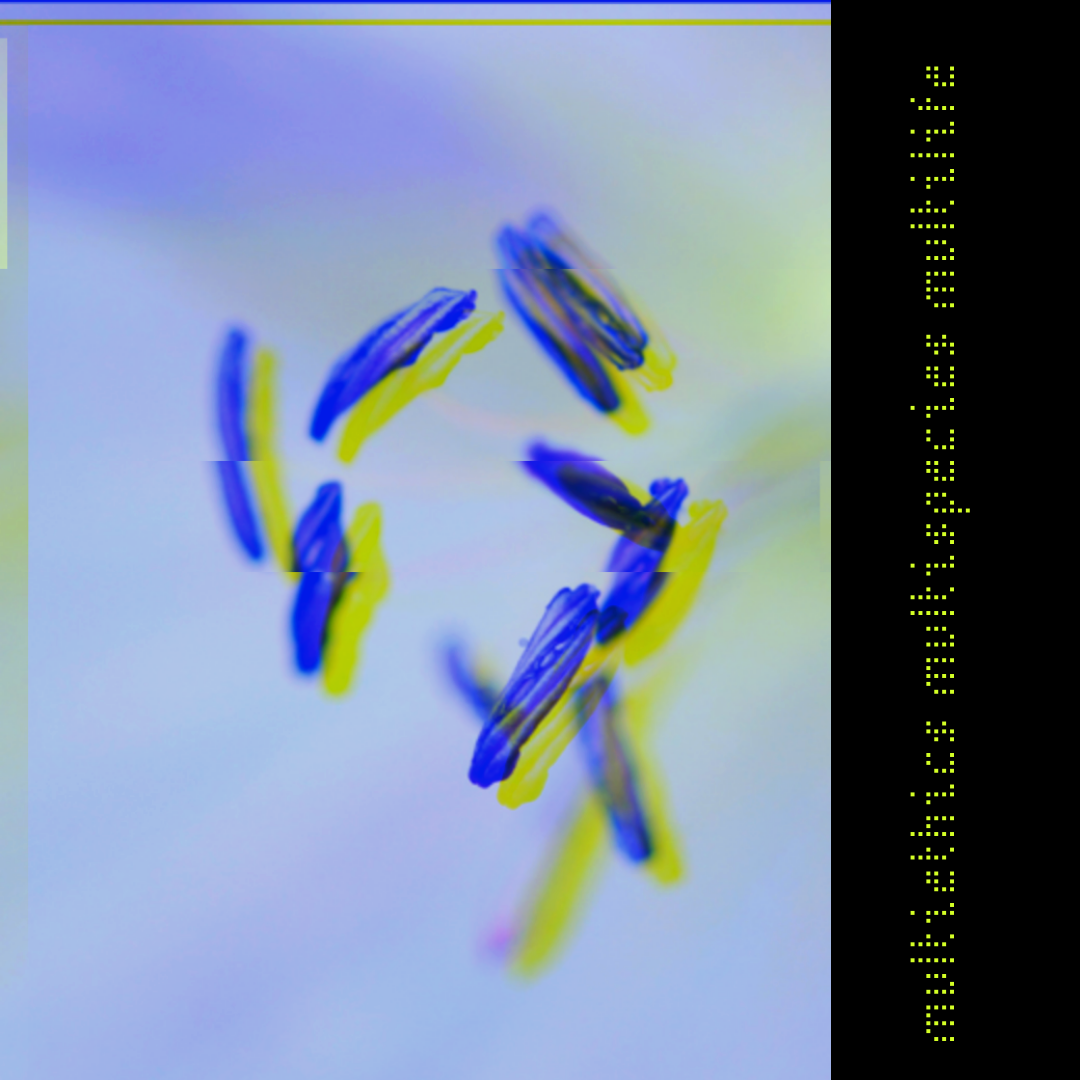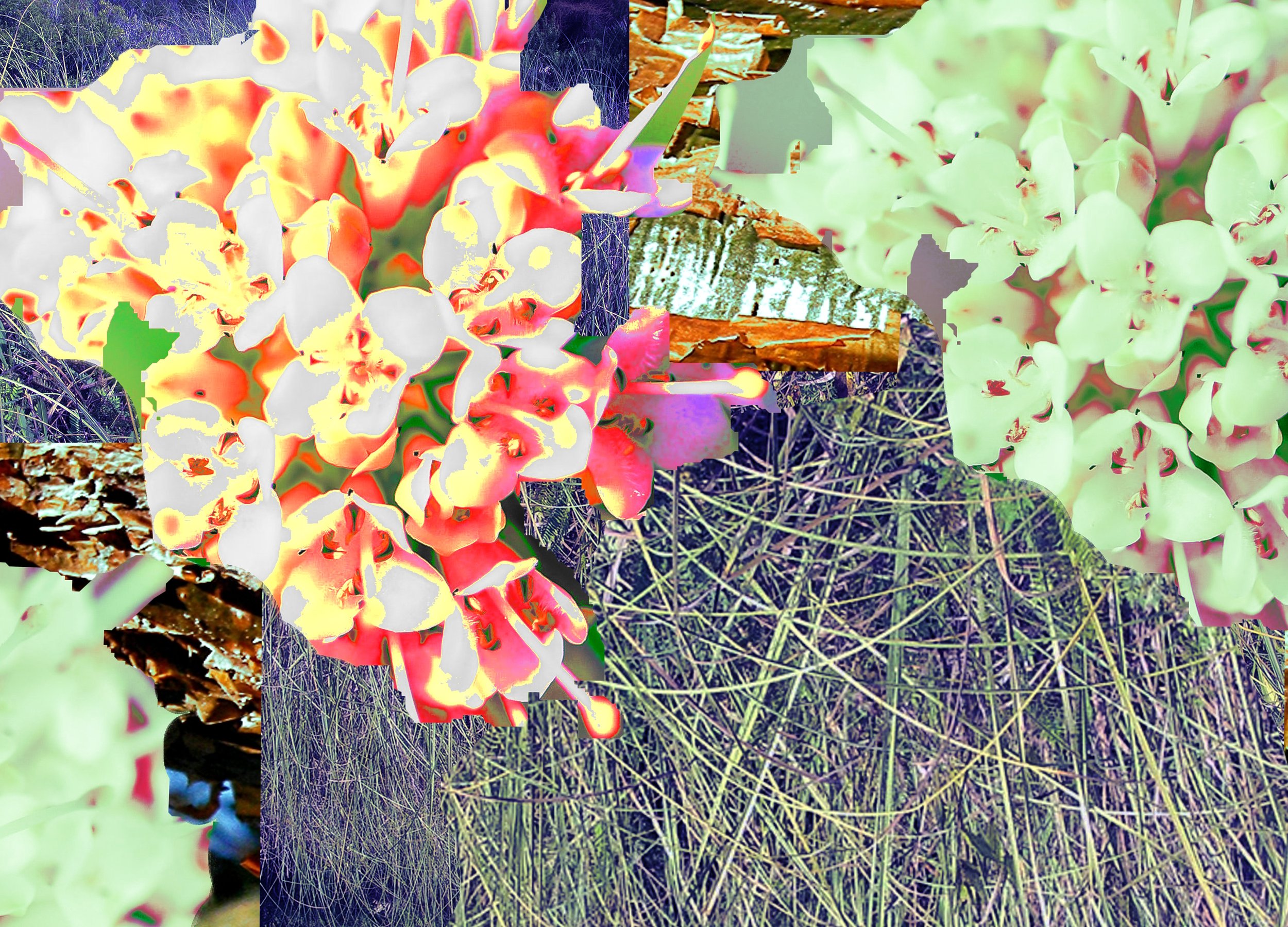
Anne McCrary Sullivan
Artist Statement: Talking & Listening to Plants
I grew up at the junction of two wildernesses. In front of our house, marshes and wetlands stretched into the distance with no human structure in sight. At the end of our dead-end street extended thousands of acres of pine and hardwood forest, and through it passed a long dirt road. My brother and I had a mother who loved the natural world. She had quit school to marry our father, but we were constantly going out in a little boat or walking into the forest, and she would always have with her a small book that she used to learn the names of things. Later, she would go back to school, become a marine biologist.
I took all of this for granted. It was simply how the world was—marshes and tides, expanses of forest.
I got married, moved away, had children and a teaching career. I loved the sound of wind in trees, went camping summers when I could, but the natural world was a backdrop, peripheral. Mother still lived in my childhood home. I went back as often as I could, but the world of my childhood was changing—marshlands transected by causeways with houses and condos, forest blocked off by an eighteen-foot-high wall beyond which sprouted multi-million dollar homes.
I began to understand Thomas Wolfe: You can’t go home again.
And then I went to the Everglades for a month-long artist residency. I had never been in the park before. I had no idea what was about to happen to me.
From my assigned cottage, I would drive across the causeway where a sawgrass prairie, the famous “river of grass,” extended as far as the eye could see on both sides. Tears would be streaming down my face, and I had no idea why.
I was struck by a passion for this place. I very quickly adopted a pattern of setting out in the morning with a backpack—water, journal, reference books. I would spend the whole day doing field work. I wanted to see everything there was to see, see it in detail. The birds and alligators were wonderful, but for the first time in my life, I was looking passionately at plants, wanting to know their names.
Then one day I realized: I’m doing what my mother did. I’m going out with passionate eyes and a little book, learning the names of things, wanting to know their roles in the ecosystem, their stories, their personal meanings for me.
I also realized that I had found home again.
That month changed everything. I have become a poet of the natural world, and my engagement with plants has grown deep. Plants have become personal, a source of pleasure, curiosity and learning. What amazes me is that learning about plants, I learn about myself and about this species to which I belong. The poem becomes a way of focusing and exploring, discovering connections and meanings. I stare, I think, I feel, I study, I write, I learn.
Anne McCrary Sullivan is a Florida Master Naturalist and an avid canoeist. She is author of a book of poems, Ecology II: Throat Song from the Everglades; a memoir with alternating chapters of poetry and prose, Learning Calabar: Notes from a Poet’s Year in Nigeria; and co-author of Paddling the Everglades Wilderness Waterway and The Everglades: Stories of Grit and Spirit from the Mangrove Wilderness. You can find her on the web at www.annemccrarysullivan.com.


